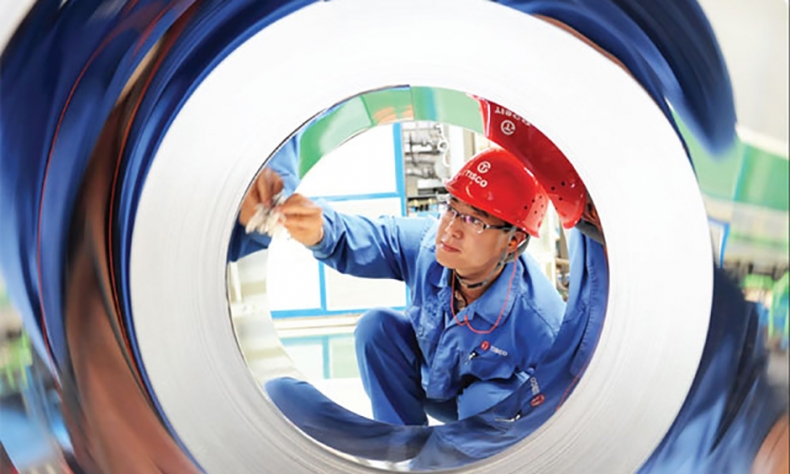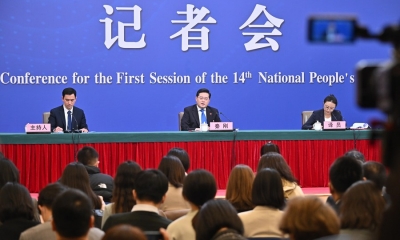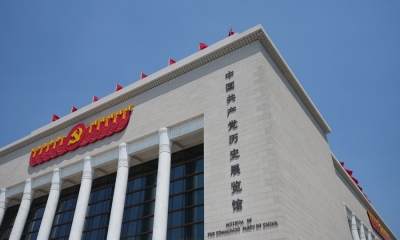Governance Modernization

Assessing the 19th CPC Central Committee’s Fourth Plenary Session
The 19th Central Committee of the Communist Party of China (CPC) held its much-anticipated Fourth Plenary Session on October 28-31 in Beijing, focusing on improving the system of socialism with Chinese characteristics and advancing the modernization of China’s system and capacity for governance. The plenum’s goal of improving governance directly aligns with a central tenet of Xi Jinping Thought on Socialism with Chinese Characteristics for a New Era.
The question of governance comes across clearly in the opening section of the decision of the Central Committee of the Communist Party of China on some major issues concerning how to uphold and improve the system of socialism with Chinese characteristics and advance the modernization of China’s system and capacity for governance. This section provides a clear sense of the Party’s mindset by noting that China “faces a complex situation with domestic and overseas risks and challenges clearly on the rise.”
Analyzing the plenum will help to understand it within the context of China’s path and model of development. In the document, the word “system,” in the sense of institutions of governance, appears 77 times. Within this context, the goal of “making progress in modernizing China’s system and capacity for governance” is essential to understanding both Xi’s and the Party’s concern for improved governance.

Not surprisingly, the plenary received limited attention outside China, which is unfortunate given the long-range potential of its work. It was far from unimportant. On the contrary, the plenary’s decision demonstrated that Xi’s ideas are guiding both the Party and the state by providing a coherent focus on one of his top priorities: improving the effectiveness of China’s governance mechanisms. Xi’s emphasis on governance is not a recent development. Much of the work of the Third Plenary Session of the 18th CPC Central Committee in 2013 also centered on reforms related to governance. Additionally, since assuming office as CPC Central Committee general secretary in November 2012, Xi has led a number of meetings, which have addressed governance issues and reform, with both Party and state officials.
While discussions about governance reform are usually viewed as something rather mundane and, perhaps, not as exciting to the outside world as deepening economic reform, nonetheless they may hold the key to China’s future because the recent plenary consolidated many aspects of Xi’s policy agenda and crafted it into an authoritative and operational document. In this respect, the decision offers an instructive overview of the Party’s overarching policy priorities.
Xi has repeatedly highlighted the necessity for the Party to develop a more sophisticated administrative apparatus to both oversee the CPC’s nearly 90 million members and manage a nation of over 1.4 billion people with an incredibly complex economy, an ever-changing society and a large international profile. The need to centralize governance is aimed at smashing corruption, enhancing Party discipline and breaking the stranglehold of bureaucratic formalism.
Since Xi was elected CPC Central Committee general secretary, he has noted that these issues have become a major impediment to both the primacy of the Party and China’s continued development and stability. Focusing on Xi’s concerns about deficiencies in governance, the plenary’s decision sets in motion the mechanism to address urgent policy problems such as inefficient economic development and capacity for innovation, poor environmental protection and inadequate social services. Addressing these issues is at the heart of the Party’s covenant with the Chinese people, one that underscores the CPC’s concern to maintain the people’s faith in both the Party and the state.
The emphasis on governance reform echoes Xi’s call to break down the barriers of entrenched interests and resolutely remove institutional and systemic obstacles that hinder social progress and the development of the productive forces. The best way to overcome these obstacles is to assert the Party’s central role and press for comprehensively deepening administrative reform. The improvement of the Party’s leadership system means that the Party leads everything, “the Party, the government, the military, society, education, east, west, north and south.” This is not some sort of boilerplate rhetoric. Rather, it is critical to understanding why Xi calls for governance modernization.
In his explanation of the decision, Xi observed that reform and opening up in the new era has new connotations and characteristics. This is because China faces systemic and institutional problems that have raised the importance of system construction. This means that the CPC must use governance reform in order to strengthen China’s policymaking and create a more holistic five-sphere integrated plan that balances economics, politics, culture, society and ecology.
Xi also places the Party’s current reform efforts on a level with that of the historical Third Plenum of the 11th CPC Central Committee in 1978 that ushered in reform and opening up and set China on a path to national renewal. Linking the recent plenum to the reforms of 1978 demonstrates Xi’s belief that the Party’s current reform policies are critical to China’s continued development and success. The plenary’s decision also reiterated Xi’s observation made earlier this year of both the risks to the Party and the nation, and the advantages of China’s system of socialism with Chinese characteristics by emphasizing that the Party needs to lead everything.
Thus the plenary signaled China’s future trajectory led by Xi and the CPC. Governance reform, which was incorporated by the plenum, is critical to the resilience of CPC rule. The plenum stressed the strengths of China’s system of centralized leadership and the need to further reform the nation’s governance structure, specifically noting that the superiority of the Party’s governance for China’s domestic conditions is based on its achievement of the two miracles of rapid economic development and long-term social stability.
Both Xi and the Party recognize that the features of Chinese governance that have contributed to its past successes—policy experimentation, flexibility and innovation—must be harnessed and enhanced in order to garner future success. It is within this context that the definitive impact of the plenum’s decision will ultimately be assessed. Xi noted in his explanation of the decision that there is urgency for China to withstand threats and seize the opportunities presented. The plenum set the stage for the launch of the next phase of reform by presenting a framework for governance in the new era, taking care to make clear that many existing initiatives like core socialist values, environmental policy and anti-corruption efforts are all to be viewed as part of a wider effort of systemic reform.
The plenary decision reiterated the plans put forward at the 19th CPC National Congress to have basically modernized the state governance system and capacity by 2035 and to fully modernize by 2049, the 100th anniversary of the founding of the People’s Republic of China. The Chinese public and foreign observers need to understand the significance of this push for modernizing governance efforts in China, something that is at the heart of Xi’s push to reform both Party and state institutions by enhancing centralized authority, making cadres more efficient and corruption-free, and introducing technologies that serve the needs of Chinese society.
Source: Beijing Review
 Facebook
Facebook
 Twitter
Twitter
 Linkedin
Linkedin
 Google +
Google +







